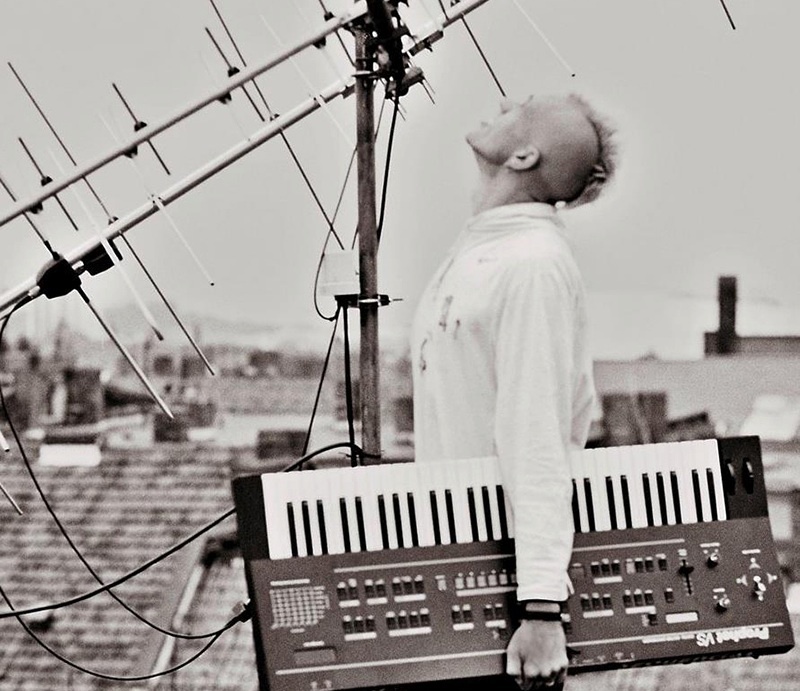Written by:
Beatrice Sommer & Simona Mantarlian
Share article:
Complexity and Repetition
Henke is also a co-developer of the music software Ableton Live, alongside Gerhard Behles. Since 1995 he has produced electronic music under the name of Monolake, originally founded in collaboration with Behles.
Robert writes and lectures about sound and the creative use of computers at the Berlin University of the Arts., the Center for Computer Research in Music and Acoustics (CCRMA) at Stanford University, and the Studio National des Arts Contemporains - Le Fresnoy in Lille, France. His installations, performances and concerts have been presented at the Tate Modern London, the Centre Pompidou Paris, Le Lieu Unique Nantes, PS-1 New York, MUDAM Luxembourg, MAK Vienna, the Art Gallery of New South Wales in Australia, KW Institute for Contemporary Art, Berlin.
We met Robert Henke in Berlin, during the CTM festival, where he presented Deep Web, made together with Christopher Bauder. 'Deep Web' is an installation using 12 high precision lasers and a matrix of 175 moving balloons to create a dramatic three dimensional sculpture of lines and dots floating in space above the audience. The choreography is synced to a musical score played back in 8 channel surround sound.
Which are your expectations regarding increased availability of Virtual Reality devices? For example, some already established Internet 3D artists like LaTurbo Avedon are expressing thoughts on how the new medium poses great limitation for Internet artists as we know them, at least in trying to convert their virtual realities to the industry standard new format.
I didn't have much time to think of the implications of virtual reality, but I once experienced it and it was very convincing already. I'm pretty sure it has the potential to change things and to become an interesting part of artistic expression.
Would you turn to this format?
Not at the moment. I still have enough ideas which I didn't do with the technology I have already, so I'm not interested in being the first one to explore a new technology, I'm more interested in finding my own language which I can do with very old machines or old technologies, apart from the lasers maybe, but I can see potential and great things to come from there. Maybe some day I will have a great idea and the technology will be there and I'm going to use it.
Do you perceive your music as deconstructive in any way to club music? In which sense?
'Deconstructing' sounds too much like ''destruction'' to me and that's not my intention. I like complexity and I like repetition. These things sometimes exclude each other and I try to find my own way to deal with it. I like to do things that have a lot of detail and I like to do things, which are repetitive at the same time. There is no big philosophical concept around that. It's just that I try to achieve something, which is personal, which is not generic, which is something that can be recognized as something done by a human being with a special idea, which works in the club context, but could also be experienced in another context. And that's it. So it's more about my personal idea of music than anything else.
How do you think we can treat feelings in the technologized context of machine-made music? The "Code Love" syntagm is recurrent and somewhat subliminal throughout your Lumiere project.
I think artistic expression always has something to do with emotions and in a way a piano is a complex machine, a laser is a complex machine too and both machines can be used to do something which touches people and I'm looking for that. I'm looking for ways to touch people. I don't want to demonstrate technology. I want to do something, which reaches people on an emotional level, and there are a few moments here at the Deep Web installation where it really works for me. I'm happy when that special moment happens because it touches me and I hope it touches everyone else too. When I compose I try things and most of the things don't work for me, so I throw them away. Other things do touch me and the emotion is there. It's the same thing working with lasers. There is a moment when I think 'This is beautiful!'. I don't know why it's beautiful, but it is. I know from other composers that this is exactly how it works. You try a lot of things, you play harmonics, you play melodies, you play chord progressions and suddenly there's something. You don't know why, but if you play certain things, it's there and this is what makes a great piece of music or a great painting or a great laser piece.
So would you describe your process more as intuitive?
I can be intuitive because I know my tools. I know the technology inside out, I know exactly what lasers can do which brings me in the position where I can play with them and by playing I discover which things actually work artistically.



